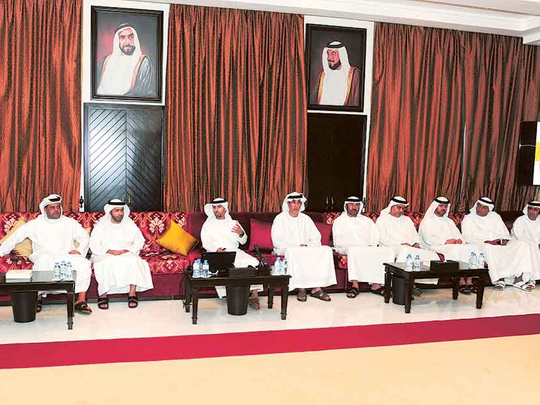
Abu Dhabi: The recent deregulation of fuel prices in the UAE is expected to help the government cut Dh9.1 billion, which were given in fuel subsidies in 2014, according to Suhail Al Mazroui, the country’s Minister of Energy.
Fuel subsidies in the UAE stood at Dh9 billion in 2012, and Dh9.5 billion in 2013, with the figure falling this year after the Ministry of Energy announced it would deregulate fuel prices.
Despite the increase in prices on the back of the deregulation, fuel prices in the UAE are the lowest among all deregulated countries, the minister said.
“Fuel prices in Europe are about four times those in the UAE even though we both deregulated prices. However, the difference is that the UAE doesn’t impose taxes on fuel prices whereas Europe does.
The idea behind deregulating prices in the UAE was never aimed at saving money just for the sake of savings; most of this money will be pumped back into the economy in the form of investments on infrastructure, health, education, and other parts of the economy,” Al Mazroui said.
Speaking at an event in Abu Dhabi, he said that, “an economy built on subsidies is not a successful or sustainable economy.”
“Oil is not a renewable source, which means we’re going to run out at some point, and we don’t want our economy to fall just because we’ve run out of oil, which means we need to make some changes,” he said.
Al Mazroui noted that the deregulation has ensured the economy’s competitiveness, adding that the UAE has become the most competitive economy in the Arab world and one that attracts many people.
In his speech, the minister said there are three million cars in the UAE — 23 per cent of which are owned by Emiratis, which means that every citizen has two or three cars. Of the three million cars, 638,000 are four-wheel-drive vehicles — 45 per cent of which are owned by Emiratis.
“Most people live inside the city, yet it has become almost a cultural norm to own a 4x4 car … We’re not asking people to change their cars, but people need to start asking themselves whether they need an eight-cylinder car before buying one and whether their car offers good mileage per litre of fuel,” Al Mazroui said.
He added that before the deregulation, which came into effect in August this year, residents did not consider fuel prices or mileage before buying a car. This promoted waste and hurt the environment.
“The government is spending millions on public transport … and providing options like the tram, metro, and buses. However, we continue seeing them going around the streets without many passengers,” the minister said.
The deregulation is expected to also boost the idea of carpooling, which will eventually reduce traffic, carbon dioxide emissions, and improve the quality of air.
As for how the ministry calculated the new prices, Al Mazroui said that a team looked at average prices across the main markets (Mediterranean, Rotterdam, and Singapore), and added a profit margin. He stressed that Brent prices and petrol prices in the UAE were not directly related, though.
“The profit margin we set is just to allow petrol stations to cover their costs; it isn’t too high but at the same time, we didn’t want them to lose too much money,” he said, adding that the ministry worked with Abu Dhabi National Oil Company (Adnoc) to reach a fair equation.
Asked about global Brent prices, Al Mazroui said, “Ultimately, the market will reach equilibrium. No one knows when it will happen, but it will. The average for this year will be $60-$65 per barrel but I can’t predict where this will go next year because there are many factors impacting the oil market rather than just supply and demand.”












